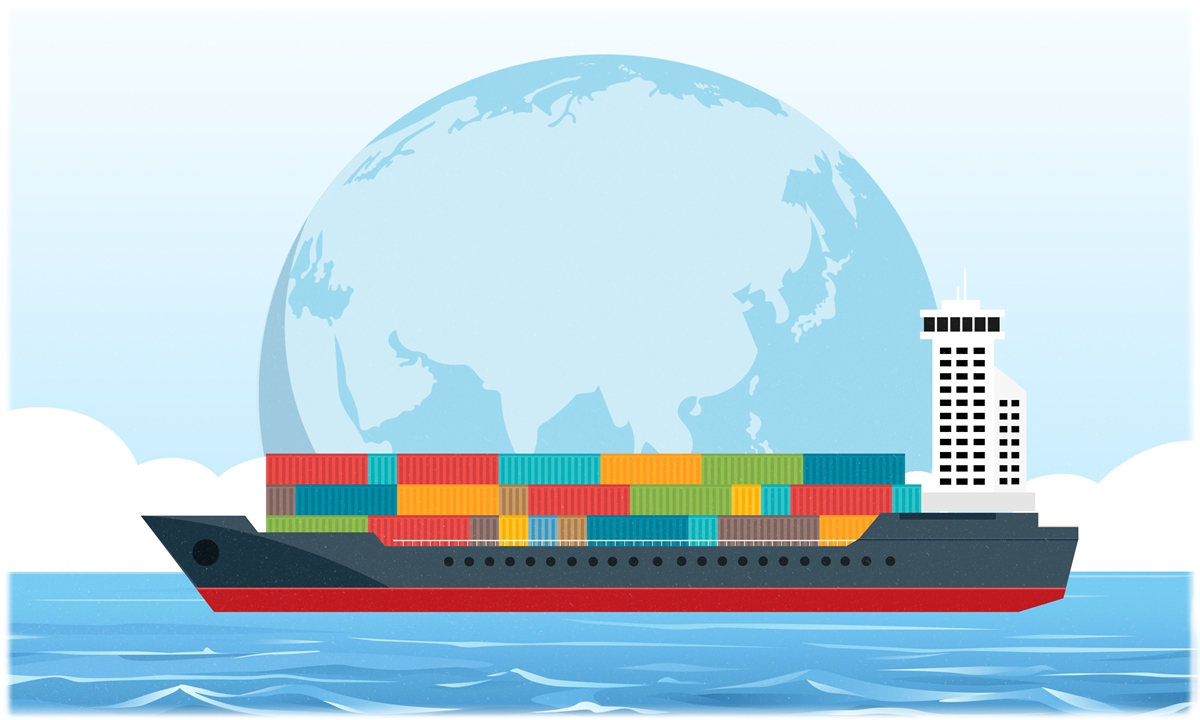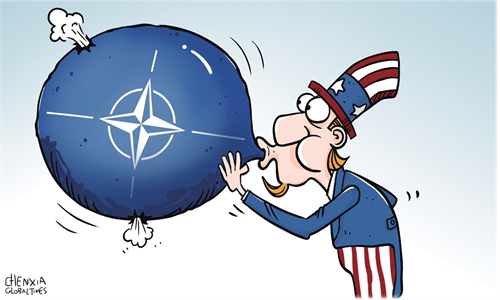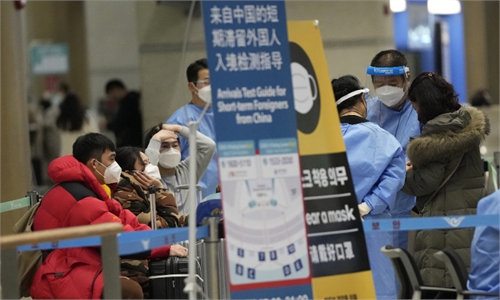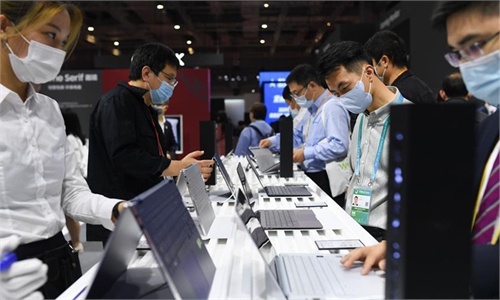
Illustration: Chen Xia/GT
As China moves decisively to escape from the haze of the COVID-19 pandemic amid a sharp recovery in economic growth, it is sincerely hoped South Korea won't miss out on a free ride on its neighboring country's economic rise, but how much it can benefit from China's growth depends on Seoul's China policy.In a report, the Korea International Trade Association (KITA) predicted the Chinese economy will likely post a 6.9 percent on-year growth in the second quarter. Should that prediction materialize, the robust growth in the Chinese economy will likely "raise South Korea's economic growth by an additional 0.16 percentage point and its exports by 0.55 percentage point this year," South Korea's Yonhap News Agency reported on Sunday, citing the report.
The news came after South Korea's economy saw its first quarterly contraction since the second quarter of 2020 when the outbreak of the pandemic roiled the economy. Bank of Korea data showed that real GDP, adjusted for inflation, fell by 0.4 percent in the final quarter of 2022, compared with the previous quarter.
In January, South Korea logged its biggest monthly trade deficit ever, at $12.7 billion, as exports of computer chips and other high-tech items sank, the Associated Press (AP) reported. South Korea's semiconductors export to China, its largest trade partner, almost halved in January, according to media reports, partly impacted by the escalating US chip war against China.
At a time when South Korea's economy is losing momentum, some South Korean people are pinning hope on China's economic recovery. But this is no time for optimism. It should be pointed out that some data have suggested things are going in the opposite direction of what people expected.
It is understandable that South Korea doesn't want to annoy US over its "decoupling" push, especially in strategic areas, such as semiconductors, but with the economical interdependency between China and South Korea, that will be difficult to achieve. South Korea may want to strike a balance amid geopolitical wrestling, but its economic woe and export decline remind Seoul that it should take a more courageous step to protect its export markets and improve economic relations with China, its largest trading partner. It is the only way South Korea can maximize the benefits of China's ongoing economic rise achieved after the country optimized its COVID-19 strategy.
However, there is a worrying phenomenon: reports that Chinese citizens said they faced unfair treatment at an airport after entering South Korea rattled the market. On January 2, the South Korean government halted short-term visas for people traveling from China, and temporarily stopped the plan of increasing flights from China. The measures taken by South Korea are regrettable. In the early days of China resuming overseas group tours, South Korea was not committed to enhancing economic ties with China and attracting Chinese tourists, but made a big fuss about its entry restriction policy and implementation, which inevitably makes people doubt whether it is a political show.
No matter how South Korean economists said they expected positive growth given China's reopening, they cannot deny that South Korea has lost in the first round of competition to attract Chinese tourists, and has missed the economic growth opportunities brought by tourism recovery after China resumed overseas group tours for Chinese citizens.
South Korea said Friday it would resume issuing short-term visas to travelers from China, ending a COVID-linked restriction that sparked tit-for-tat measures from Beijing. After the announcement, Chinese Foreign Ministry spokesperson Mao Ning said China will consider resuming issuance of short-term visas for South Korean citizens when appropriate. "It is hoped that South Korea will work with China to do more to facilitate normal people-to-people exchange between the two countries," Mao said.
A resumption of short-term visas should become a new starting point for South Korea to exploit the potential of China's ongoing economic recovery. If South Korea loses in the first round of the competition, hopefully it can catch up in the second round, and whether South Korea wins or loses depends on Seoul's wisdom.
The author is a reporter with the Global Times. bizopinion@globaltimes.com.cn



